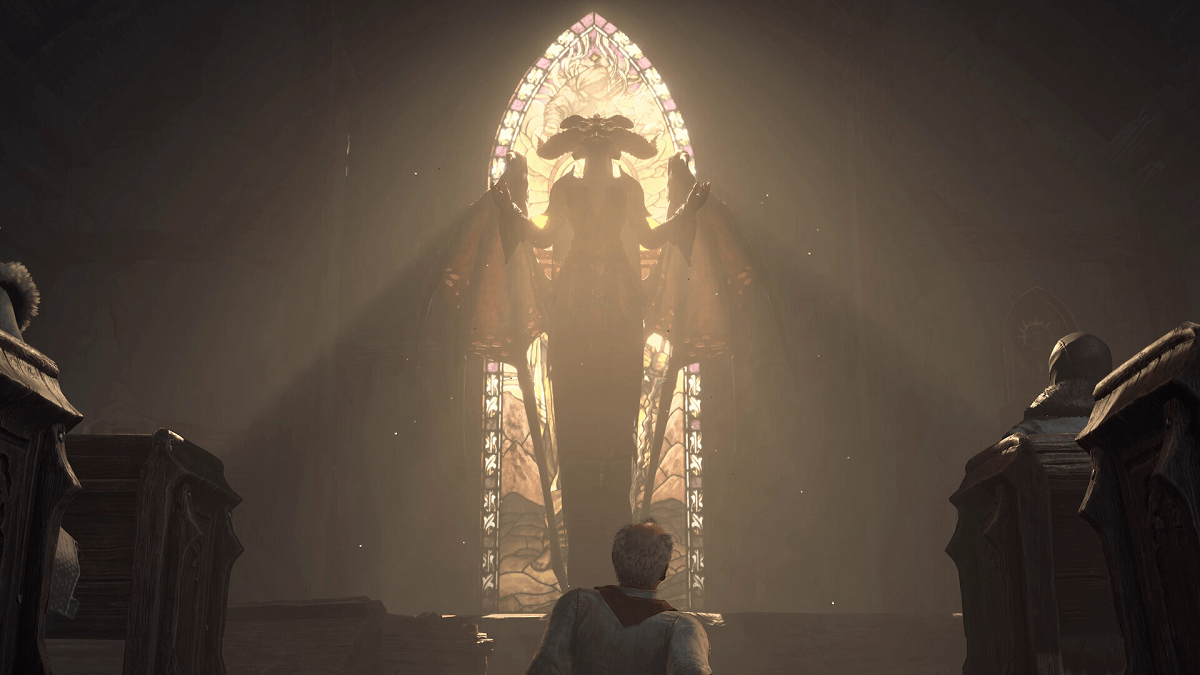Adapt to abide
Natural Doctrine is a strategy role-playing game with a sadistic side. It’s a brutal and uncompromising experience, one keen on taxing players and pushing them to their limits with its intense difficulty.
The architects behind the title invite comparisons with Dark Souls, and have certainly built a similarly steep hill to climb. Natural Doctrine is enigmatic and soul-crushing, but lacks execution and self-awareness. Simply being tough as nails doesn’t make an experience rewarding.

Natural Doctrine (PS4 [reviewed], PS3, Vita)
Developer: Kadokawa Game Studio
Publisher: NIS America
Released: September 30, 2014
MSRP: $59.99
Natural Doctrine tells the story of a world where humanity hangs by a thread. Mankind is under siege and on the verge of extinction, with only one defense to stem the tide. Pluton, a rare mineral that allows people to wield magical energy, is man’s last hope.
It’s a difficult thing to come by, though. Acquiring pluton is dangerous work, work entrusted to Bergmans, professions raiders tasked with traipsing through goblin-infested mines to extract the precious resource by any means necessary.
Players take on the role of such a crew, one that quickly becomes caught up in a conflict far greater than their job description entails. It’s an intriguing concept, but the presentation is underwhelming. The narrative is shoddy, rife with anime clichés and an unlikable cast. It’s really a pity, too, because Natural Doctrine is a title that sorely could use a decent tale for players to latch onto while the gameplay viciously attempts to beat them down.

Battles are exceedingly complex affairs. Though combat takes place on a gridded map, Natural Doctrine is far from a standard SRPG. Characters are able to move freely within a given range, and can be positioned anywhere within a tile. This makes line of sight and cover important aspects of battle, though nothing in Natural Doctrine is given more weight or importance than controlling initiative.
The order of turns can be changed at any time via the link system, which allows friendly units in the same or adjacent square to override priority and assault foes simultaneously. It’s an easy enough concept to grasp, but incredibly difficult to master, an issue inflamed through clumsy tutorials. Nothing is explained terribly well, though not for lack of trying. Players are constantly flooded with information on all corners of the screen, including a ticker tape scrolling at the bottom of the screen like some sort of television news channel. It’s suffocating, really.
The most frustrating aspect of Natural Doctrine is the computer will always understand the game’s systems and rules far better than the player, but there are other annoyances as well. Since the link system allows the entire enemy force to bear down on players at any time and a single character falling in battle results in a game over, the consequence of one small misstep is likely death.
It won’t be an instant death, mind you. Failure is often a long, drawn-out process thanks to Natural Doctrine‘s hellishly slow pace. The game interminably forces players to sit through every animation as units think out their plan and move. Then players are asked to confirm the enemy movement, like one has any choice in the matter, only to sit through elongated attack animations. And, thanks to the link system, players get to watch dozens of these between turns. It’s … not great.

Natural Doctrine often doesn’t feel as much about strategy as it does trial, error, and time investment. Sometimes doom is unforeseeable, and even when it’s not the game does precious little to intimate what should be done. This is a problem if only because the margin for error is so small, limiting one’s leeway for critical thinking and tactics, as it narrowly funnels players down a path. Again, not by showing players, but by punishing them for lacking clairvoyance.
Defeat can begin before a battle is underway. Perhaps characters are underleveled and need to grind a while or maybe their statistics are just poorly allocated. Natural Doctrine does something quite novel in this regard, allowing players to adjust stats on a whim, which can drastically change how a hero plays and performs in battle. Of course, it can be disheartening to dedicate nearly an hour to a fight in vain, only to realize another loadout is likely the key to victory. Such hindrances mean victory frequently doesn’t come with a sense of accomplishment as much as it does relief. Natural Doctrine feels like repeatedly navigating a minefield, more so than a true tactical experience.
Some small part of me still likes the game for some reason, so I grasp at reasons why I continue amid all the issues and frustrations. The visuals certainly aren’t the reason. Natural Doctrine looks washed out and muted. Like the story, the art direction is a missed opportunity to bring some color to an otherwise dreary experience.

The campaign is supplemented with online co-op and versus modes, where players can take control of orcs, goblins, and minotaurs for a change of pace. It’s actually a pretty nice addition, as competing on a level playing field makes the experience more enjoyable.
Natural Doctrine isn’t atrocious, but it does have a lot of issues. It’s as frequently enjoyable as it is repugnant, an experience that will often blindside you with cheap deaths that reek of artificial difficulty. Some will enjoy it, sure. But it’s a hard sell to all but the most staunch and patient SRPG fans. And even then it will undoubtedly test those players’ resolve.




Published: Oct 6, 2014 02:00 pm